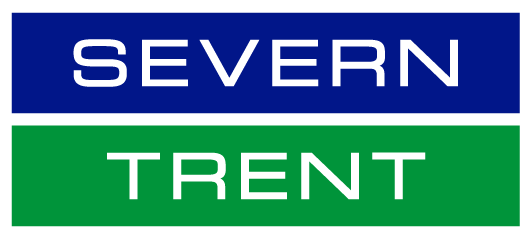Severn Trent and Gurdwaras link up to tackle sewer blockages and fatbergs
28th February 2024
Severn Trent has launched a unique partnership with Gurdwaras to prevent damaging sewer blockages and fatbergs - by installing kitchen traps to collect fats, oils and grease (FOG).
The water company is teaming up with Sikh places of worship for the green scheme, including Baba Sang in St Paul’s Road, Smethwick.
And there are plans to expand the initiative to other Gurdwaras across the whole Severn Trent region, with more than 80 potentially set to sign up.
Gurdwara kitchens are used by volunteers to cook and provide free meals to both the congregation and wider community.
Severn Trent and contract partners Environmental Compliance & Services (ECAS) have linked up with Lifecycle Oils (LCO) and community group Gurdwara Aid - which called the scheme a potential ‘world first’.
The scheme was launched this week at Baba Sang, which has installed three of the fat traps. Gurdwara Aid spokesperson Harvinder Singh said: “This ground-breaking partnership joins Gurdwara Sahibs with Lifecycle Oils and Severn Trent to help keep our waterways and drains flowing.
“We feel the wider Sikh community will welcome this new undertaking as a valuable contribution to a cleaner environment.
“This joint venture – possibly the first of its kind anywhere in the world – demonstrates the power of collective responsibility. We are delighted to be working closely with the team from LCO and Severn Trent.”
Harkeerat Kaur, from ECAS, represents Severn Trent as a Community Engagement officer and has been liaising with Gurdwaras, with hopes of signing up many more across the Severn Trent region in coming weeks and months. She said: “The reaction from Gurdwaras to the FOG-traps has been very positive and we are in discussions with many of them about signing up.
“Together, the Gurdwaras could have a huge environmental impact by helping prevent damaging and costly FOG blockages in our sewers.”
Guru Nanak Gurdwara in High Street, Smethwick, has also signed up for the scheme. Its President Kuldeep Singh Deol said: “Recognising the environment and Mother Nature’s sanctity is integral to the Sikh faith. Therefore, this project aligns perfectly with our values and will actively foster sustainability.”
Grant Mitchell, FOG lead at Severn Trent, said: “This is a really innovative scheme where Gurdwaras can help the environment by collecting fats, oils and greases from their kitchens and congregation homes, which should never be flushed down sinks or drains.
“We know that FOG can create costly blockages in our network, including fatbergs. This community-led scheme will help reduce them.
“The bonus is that Gurdwaras can also reap the financial benefits by creating additional income, as they can sell the used oil to Lifecycle Oils, who buy it back to create environmentally friendly energy as part of the agreement.“
He added: "As an added initiative, large branded tanks have been installed at the Gurdwaras to allow the congregation to bring their domestic recycled fat, oil and grease from home.
“This will help reduce the discharge of FOG into the sewers, minimising blockages in the local community, whilst increasing the amount of FOG the Gurdwara can collect.”
Helping people to understand how and why to avoid sewer blockages is a big priority for Severn Trent as they can cause sewer flooding and pollution.
Latest data shows in one year the company inspected around 37,000 sewers, cleansed around 18,000 pipes and repaired around 7,700 pipes.
In just four months last year, ECAS on behalf of Severn Trent has engaged with local FSEs (food service establishments), and made over 1,200 visits to restaurants, cafes and other eateries across the region, resulting in 527,000 litres of FOG being stopped from going into the sewer network.
Since Severn Trent partnered with ECAS and started the FSE scheme, more than 12 million litres of FOG has been trapped, with 76% of food firms working with the water company installing correctly sized and maintained grease trapping equipment.
"By providing and maintaining the equipment for free, we are helping the Gurdwaras, the environment and the sewer network at the same time - it really is a win for all," said Toby Durrant, Commercial Sales Director for LCO.
"The recovered material is used to generate sustainable electricity by LCO, helping to reduce greenhouse gas emissions.”
